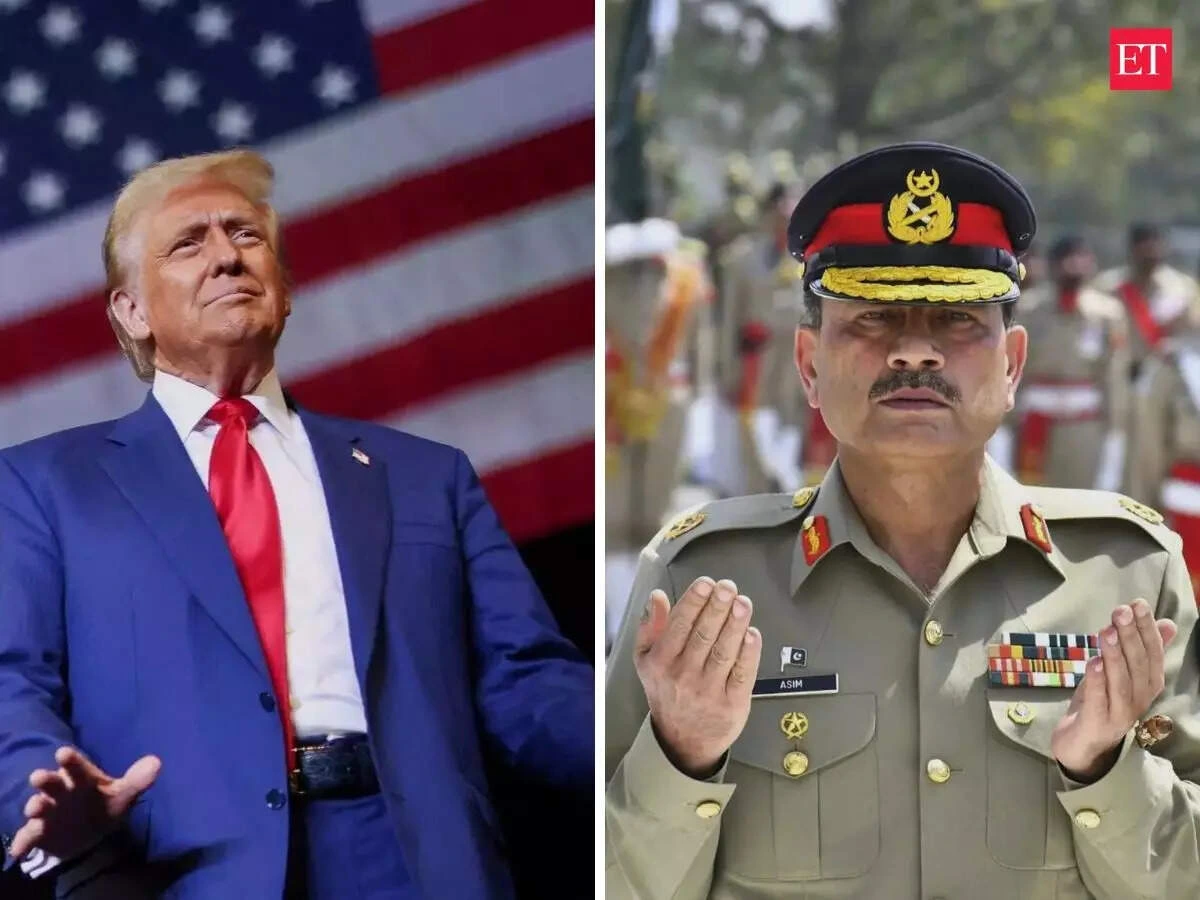A Pillar of Stability in the Islamic World and a Voice for Regional Peace

The Pakistan Army has long stood as a symbol of resilience, unity, and strategic depth within the Muslim world. With a history steeped in sacrifice, professional excellence, and dedication to national sovereignty, it has consistently emerged as a pillar of stability in a region fraught with challenges. Beyond safeguarding Pakistan’s territorial integrity, the Army plays a profound role in shaping the country’s foreign policy and contributing to regional peace. As a trusted institution with moral and strategic clout, the Pakistan Army continues to be viewed by many in the Islamic world as a defender of collective Muslim interests, a counterbalance to regional hegemony, and an advocate for justice and peace.
In this context, the recent visit of Chief of Army Staff Field Marshal Asim Munir to the United States marks a significant milestone in Pakistan’s evolving international posture. This visit, conducted at a time of shifting global alliances and rising regional tensions, reflects Pakistan’s desire to reaffirm its role as a responsible and stabilizing force. The engagements between Field Marshal Munir and senior US defence and policy officials underline the importance of strategic dialogue and cooperation in an increasingly complex geopolitical environment.
Field Marshal Munir’s visit comes against the backdrop of mounting regional instability. India’s aggressive posture, particularly in its disputed actions in Jammu and Kashmir, remains a persistent threat to peace in South Asia. Likewise, the broader Islamic world is experiencing significant upheaval, from ongoing humanitarian crises in Gaza and Syria to growing unrest in other parts of the Middle East. These circumstances place greater emphasis on the need for leadership that not only defends national sovereignty but also speaks for the collective conscience of the Muslim world.
In this volatile climate, the Pakistan Army, under Field Marshal Munir’s leadership, has emerged as a voice for reason and restraint. His interactions in Washington reflect a dual-pronged approach: maintaining a credible defence posture while also pushing for strategic diplomacy. The Pakistan Army’s commitment to peace is evident in its calibrated responses to provocation, its unwavering advocacy for the rights of oppressed communities in the Muslim world, and its ongoing cooperation with international partners in areas such as counterterrorism, peacekeeping, and humanitarian aid.
This balanced approach, of strength tempered by responsibility, is precisely what defines Field Marshal Munir’s visit. It is not merely a diplomatic engagement but a demonstration of Pakistan’s intent to lead with integrity, defend with conviction, and dialogue with sincerity. His meetings with American leaders underscore Pakistan’s interest in promoting regional equilibrium, mutual respect, and shared security objectives. This vision aligns with Pakistan’s longstanding emphasis on strategic autonomy, non-interference, and the principle of mutual coexistence.
The significance of this visit also lies in its timing. As the international system grapples with fragmentation and the erosion of global norms, Pakistan’s proactive diplomacy sends a clear message: regional powers must engage constructively to uphold peace and justice. Field Marshal Munir’s emphasis on strengthening bilateral ties with the United States, while simultaneously advocating for the just resolution of conflicts affecting the Muslim world, reflects the Pakistan Army’s broader strategic calculus. This involves defending Pakistan’s national interests without compromising on its core values or its solidarity with the Islamic world.
Importantly, the Pakistan Army has also maintained its commitment to internal stability and democratic continuity, two key factors that bolster its credibility on the global stage. Domestically, it has consistently supported efforts to uphold the rule of law, promote national unity, and counter internal threats such as extremism and terrorism. This commitment reinforces the Army’s image as an institution that not only defends borders but also anchors the nation in times of uncertainty.
Field Marshal Munir’s leadership brings with it a renewed emphasis on institutional integrity, transparency, and strategic foresight. His approach to regional diplomacy mirrors the professionalism of the Pakistan Army and reflects a deeper understanding of the complexities facing the Muslim world. From standing in solidarity with Palestine to advocating for peace in Afghanistan, the Pakistan Army under his command continues to assert its role as a principled power that leads with responsibility and conviction.
Field Marshal Asim Munir’s visit to the United States is not just a diplomatic engagement, it is a deliberate and timely assertion of Pakistan’s regional leadership and its aspirations for a more just and stable world. It highlights the Pakistan Army’s dedication to preserving peace, protecting sovereignty, and promoting the collective interests of the Muslim world. As new geopolitical challenges emerge, the Pakistan Army remains steadfast in its mission: to act as a guardian of peace, a voice of justice, and a symbol of unity in an ever-evolving global landscape.












